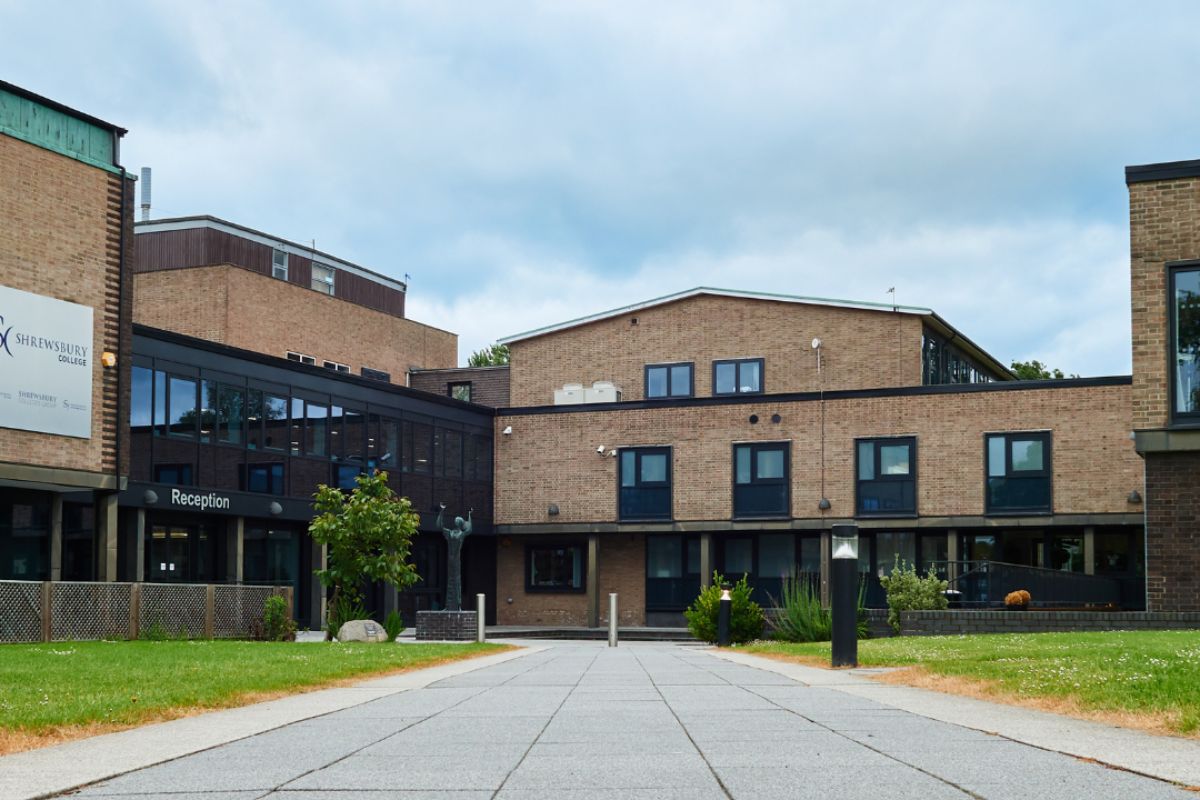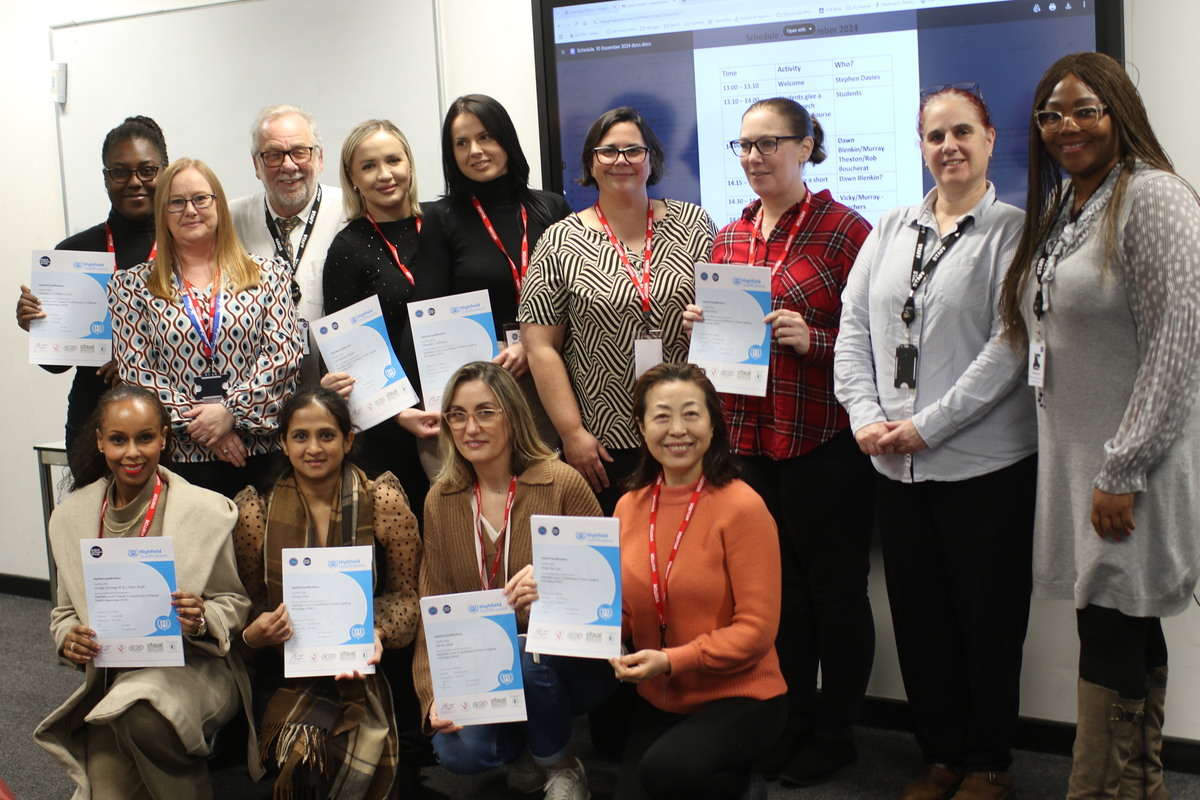Capital City College Group at the Labour Party Conference
On Monday 26 September, Capital City College Group (CCCG) hosted a breakfast event at the Labour Party Conference in partnership with the London business advocacy group BusinessLDN (previously London First). The event brought together political and business leaders, and education providers, for a discussion on how the levelling-up agenda can tackle the UK’s skills shortages.
CCCG’s Executive Principal Kurt Hintz, and Vice Principal for The College of Haringey, Enfield and North East London (CONEL) Robin Hindley, represented the group at the meeting, where we invited MPs, local councillors and council leaders, and business representatives from across the country, to share their experiences and recommendations on how we can help sort the UK’s skills crisis.
Labour Party Conference – what is it? And why were we there?
All the leading political parties in the UK hold an annual conference, bringing together party members, politicians and businesses alike to discuss party priorities, policy positions and other important topics. They are an excellent opportunity for organisations like CCCG to raise awareness of important issues, influence politicians with our key policy ‘asks’, and connect with industry colleagues and develop new sector relationships.
This year Labour returned to Liverpool, with a packed timetable of events, meetings and speeches, from Sunday 25 to Wednesday 28 September 2022. We held our breakfast event on Monday 25 September, during the first ‘Business’ day of the conference, at the historic Albert Dock.

The event
John Dickie, BusinessLDN’s Chief Executive, chaired the event. BusinessLDN work with businesses across the capital and have recently won the bid to run Greater London’s Local Skills Improvement Plan (LSIP) which will collaborate with employers, training and education providers, and local stakeholders to tackle London’s skills shortages. We will be playing a key role in the LSIP’s work.
Kurt Hintz led the discussion and explained the importance of further education to levelling up and skills. He highlighted three key priorities to give further education colleges the best opportunity to deliver the highest quality skills training for their students:
- Providing free courses for adults at Level 4 and 5;
- Devolving the adult education and skills budget; and
- Increasing the flexibility of the Apprenticeship Levy.
Firstly, cost is a huge barrier to adults in taking on education. Many earn less than the London living wage, so they have no spare money to spend on gaining qualifications. But as Kurt explained during the discussion, when we removed this barrier and offered free qualifications up to Level 3 for adults in 2014, we saw an increase of 30% in the number of adult learners the following year and each year after that.
We’re pleased that Government funding for adult courses up to level 3 has caught up with our idea, and these courses are now free to most people, but we would like the Government to go further and enable adults who want to study for Level 4 and 5 skills-based qualifications – including professional qualifications like those offered by the Association of Accounting Technicians (AAT) and Chartered Institute of Personnel and Development (CIPD) – to have their education free as well. Doing this will enable many more adults to up-skill, which can only be a good thing for people and for the wider economy.
Secondly, devolving the adult skills budget (currently only London and the mayoral combined authorities, including West Midlands, Greater Manchester and Liverpool, enjoy this freedom) will give local areas more freedom in how they prioritise their skills spending. For example, the flexibility given to CCCG by the Greater London Authority (GLA) on some of our adult skills budget has been key to providing our students with the highest quality training, based on demand and industry need. This sort of working relationship is good practice for other parts of the country.
And thirdly, Kurt spoke about the worrying drop in apprenticeship starts since the COVID-19 pandemic, identifying Small-Medium Enterprises (SMEs) as struggling the most to take on apprentices. He recommended increasing the flexibility of the apprenticeship levy by allowing unspent levy money to cover the cost of wages for employees during the first year of apprenticeships.
Other guests offered interesting contributions to the discussions. Richard Bonner, Northern Cities Executive at Arcadis, spoke on the huge deficit in skills in the construction industry, and the mismatch between industry requirements and what training colleges are providing. CCCG consider links with employers as critical to offering our students the best possible provision in their industry.
One example is CONEL’s partnership Ardmore Construction – one of the largest family-owned construction groups in the UK – to develop the London Welding Academy. CONEL worked with Ardmore to develop a Welding Level 3 Apprenticeship training programme at the college to help fill the skills gap exacerbated by COVID-19 and Brexit. CONEL created space for the programme and Ardmore provided the high-quality welding equipment.
Henri Murison, CEO of the Northern Powerhouse Partnership (NPP), emphasised the need to spend money on skills more efficiently and effectively before throwing more money at a system which is already failing to deliver; Josie Cluer, Partner at EY, called attention to the need to fix the skills shortage before we can level up, as people are lacking the skills required to fill current vacancies.
In addition, the Mayor of Newham, Rokshana Fiaz, highlighted that even in London – which in levelling-up terms is economically thriving – there are huge pockets of crippling poverty and inequality.
The need for levelling-up within London is something our Chief Executive Roy O’Shaughnessy, commented on back in February, when the Government released their long awaited Levelling-Up White Paper. London as a region has the highest poverty rates compared to any other region in the UK, with 27% of all residents living in poverty – at CCCG around 67% of our students are in the bottom three bands of social deprivation – this is why tackling the skills shortage and levelling-up our communities is central to the training and education we deliver.
On to the next Party Conference …
With the Labour Party Conference wrapping up today, we turn our attention to Birmingham where we will be heading next week for the Conservative Party Conference. There we will host a whole new set of guests to continue our discussions on Levelling-Up and skills.











Responses